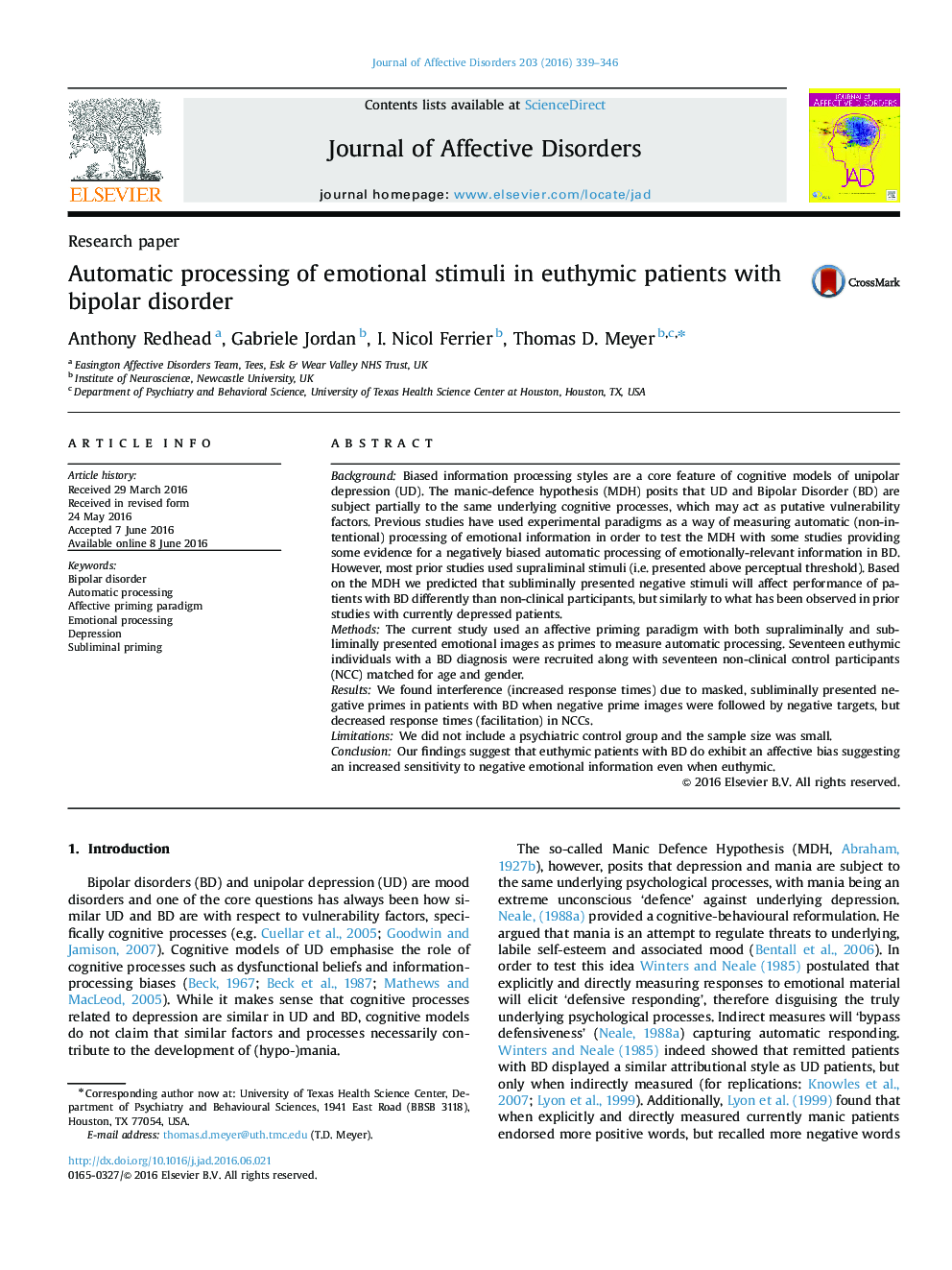| کد مقاله | کد نشریه | سال انتشار | مقاله انگلیسی | نسخه تمام متن |
|---|---|---|---|---|
| 6229901 | 1608122 | 2016 | 8 صفحه PDF | دانلود رایگان |
- Negative stimuli presented subliminally affect bipolar patients differently.
- Healthy controls show facilitation for a negative prime-target pair as expected.
- Bipolar patients do show interference and not facilitation in this situation.
- Bipolar patients do not show interference when the target is positive however.
BackgroundBiased information processing styles are a core feature of cognitive models of unipolar depression (UD). The manic-defence hypothesis (MDH) posits that UD and Bipolar Disorder (BD) are subject partially to the same underlying cognitive processes, which may act as putative vulnerability factors. Previous studies have used experimental paradigms as a way of measuring automatic (non-intentional) processing of emotional information in order to test the MDH with some studies providing some evidence for a negatively biased automatic processing of emotionally-relevant information in BD. However, most prior studies used supraliminal stimuli (i.e. presented above perceptual threshold). Based on the MDH we predicted that subliminally presented negative stimuli will affect performance of patients with BD differently than non-clinical participants, but similarly to what has been observed in prior studies with currently depressed patients.MethodsThe current study used an affective priming paradigm with both supraliminally and subliminally presented emotional images as primes to measure automatic processing. Seventeen euthymic individuals with a BD diagnosis were recruited along with seventeen non-clinical control participants (NCC) matched for age and gender.ResultsWe found interference (increased response times) due to masked, subliminally presented negative primes in patients with BD when negative prime images were followed by negative targets, but decreased response times (facilitation) in NCCs.LimitationsWe did not include a psychiatric control group and the sample size was small.ConclusionOur findings suggest that euthymic patients with BD do exhibit an affective bias suggesting an increased sensitivity to negative emotional information even when euthymic.
Journal: Journal of Affective Disorders - Volume 203, October 2016, Pages 339-346
